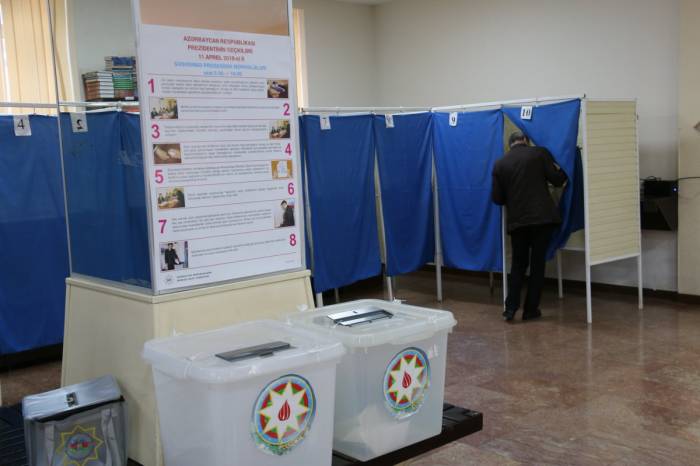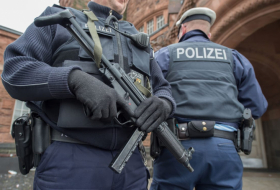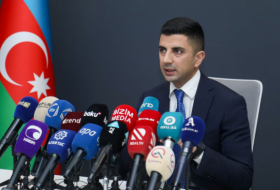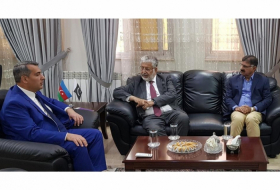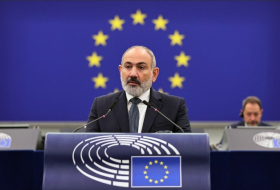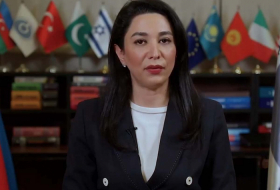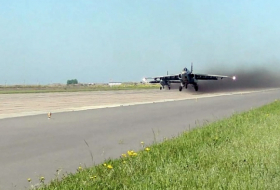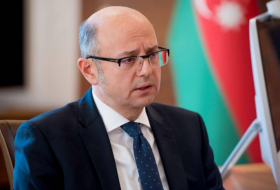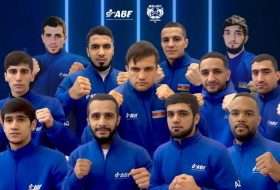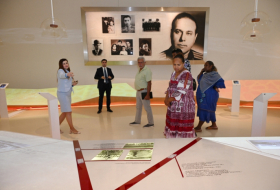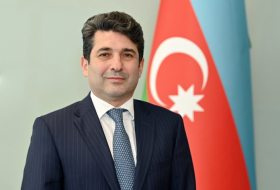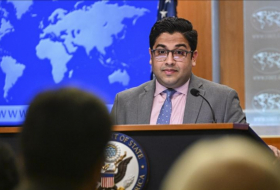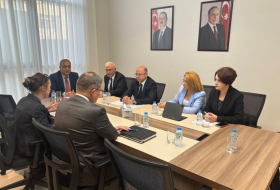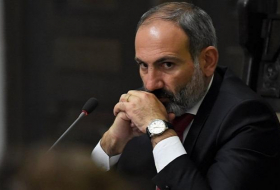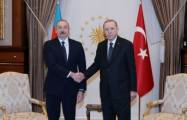It provides political stability and economic sustainability. It stands for political wisdom and hope for betterment. It transforms political parties, society, civility, economics, administration and state craftsmanship. To achieve the further “politicization” and “democratization” in the country the Republic of Azerbaijan also held a snap parliament election on February 9, 2020.
Western Media’s Biased Reactions
Initially, there was “hue and cry” on the holding of snap parliament election in Azerbaijan by Western mass media and its allies in the region and termed it another attempt of “annexation” of absolute power by the ruling party. On the contrary, the ruling party of Azerbaijan rightly decided to hold an early election in the country because of achieving close “liaison” with the ongoing diversified but integrated economic and structural reforms. Moreover, the “constitution” of Azerbaijan allows snap election which is also endorsed by the Electoral code. Members of ruling party submitted a resolution in the parliament for its dissolution which was even endorsed by the constitutional court. On the request of members of parliament and verdict of the constitutional court the President Ilham Heydar oglu Aliyev dissolved the parliament by issuing a decree.
Snap Election 2020
The whole process of announcement of snap election neither did not show any administrative discolorations or nor legal flaws, every step was supported by the law of the land and constitution of the country too. It seems that most of the western media do not have in-depth knowledge of the political system, constitution and judicial system of Azerbaijan and always report only depending upon its limited knowledge mixed with prejudices, hatred and falsified table stories/news items.
The OSCE Office for Democratic Institutions and Human Rights (ODIHR) Statement
The OSCE Office for Democratic Institutions and Human Rights (ODIHR) formally opened its election observation mission (EOM) for the 9 February early parliamentary elections in the Republic of Azerbaijan. Now it has submitted its preliminary statement indicating some shortcomings in the currently held parliament election. Denial of permission to some prospective candidates, absence of any meaningful choice, political debate, media coverage and competition remained main attributors to currently held election in Azerbaijan. Even, the OSCE Parliamentary Assembly (OSCE PA) and the Parliamentary Assembly of the Council of Europe (PACE), noted that many candidates used social media to reach out to the voters, absence of campaign coverage in traditional media, flaws in counting, proxy voting and engineered rigging.
Foreign Ministry of Azerbaijan’s Immediate Response
On its part foreign ministry of Azerbaijan immediately responded to this statement and showed its disagreement on certain issues pertaining to so called shortcomings and labeled it mere procedural mistakes at individual levels. The Chairman of Central Election Commission has promptly assured that the alleged and self-reported violations will be thoroughly investigated and all necessary measures within the framework of the law will be taken.
It noted with satisfaction that all international organizations that have been invited to observe the parliamentary elections, including the institutions united under IEOM, accepted the invitation and participated in the election observation mission. It commended the positive points, including the comprehensiveness of the registration process of the candidates, good governance of the election process and complete impartiality and transparency in the diversified but integrated activities of the Central Election Commission. The foreign ministry statement upheld that snap parliament election was the reflection of Azerbaijan people’s will for further politicization and democratization in the country. It showed its willingness to continue its cooperation with international organizations, including OSCE/ODIHR on a fair and constructive basis.
The Preliminary Statement of the OSCE/ODIHR: Full of Misconceptions & Misperceptions & Self-Contractions
The preliminary statement of the OSCE/ODIHR is full of misconceptions & misperceptions and self-contractions. On the one hand it praised the chief election commission and on the other hand raised question about its transparency and imparity. According to constitution of Azerbaijan, the Chief Election Commission is an independent organ of the state which exercises its authority in every matter to hold a free, fair and transparent election.
Important Role of the Chief Election Commission
Moreover, elections are primarily regulated by the Constitution and the Election Code in Azerbaijan. Most recently held parliament was administered by three levels of commissions, comprising the Central Election Commission (CEC), 125 Constituency Election Commissions (ConECs) and some 5,575 Precinct Election Commissions (PECs). The CEC is appointed by the parliament. For all commissions, one third of members should represent each the parliamentary majority, minority, and independent deputies. The Central Election Commission (CEC) and its subordinate entities were completely free, independent and impartial in their functions and their executions. So, shortcoming pointed out by the OSCE/ODIHR with special reference to CEC has no substance.
Election Procedure
In Azerbaijan, all citizens who are 18 or older by Election Day have the right to vote, except those recognized as incapable by a court decision. The CEC maintains an integrated nationwide voter list. According to the CEC, there were some 5.3 million registered voters. Eligible voters who were at least 25 years of age, without dual citizenship or obligations before other states, and without a prior conviction for a serious crime, stood for parliament. Candidates were self-nominated as well as nominated by a political party, a coalition of parties, or a group of voters. It showed high levels of freedom for all the candidates to stand for parliament election which clearly negated the allegations raised by the OSCE/ODIHR.
Political Campaign
The campaign started 23 days prior to Election Day and last until 24 hours before Election Day. Campaign events were held at specifically assigned venues throughout the country, indoor and outdoor, determined by municipal authorities, upon the request of ConECs. The campaign was conducted through meetings with citizens, but also by disseminating printed materials, as well as through social media and the Internet.
Political Financing
Campaign finance legislation did not envisage direct public funding of the campaign, set limits for private donations and expenditures and obliged candidates to report on their campaign finances. The comprehensive pre-post-election arrangements controverted the preliminary statement of the OSCE/ODIHR because substantial time was granted to every candidate and political party having equal playing filed during the election. Neither any comparative advantage was given to any favoured political party nor was special relaxations given to any independent or political parties’ candidates in the parliament election 2020.
Constitutional Guarantees
Furthermore, freedoms of expression and the media, and the right of access to information were also guaranteed by the Constitution, defamation remained a criminal offence, also applicable to the online content, with a penalty of up to two years in prison. Television was the main source of political information, while the use of social media and the Internet for this purpose continued to increase. In this connection preliminary statement of the OSCE/ODIHR was factually incorrect because there was no bar from the government or CEC against any political party or independent candidate for its media coverage or projection. Mass media was totally free to report and cover the electioneering in the country.
Right of Appeals
To uphold the concept of free, fair and transparent election decisions of election commissions could be appealed by broad range of electoral stakeholders to the higher election commission and further to the courts of appeals and to the Supreme Court as the last instance. Decisions and actions of the CEC could be appealed to the Baku Court of Appeal and, in turn, to the Supreme Court. Every candidate and every political party had the equal right of electoral integrity and justice which upheld total transparency, free and fair election in the country. Political means embodied with peace and harmony was the hallmark of Azerbaijan democracy having a vibrant political system and dynamic parliament during the most recently held snap parliament election.
Vastness of Azerbaijan’s Political Canvas
Vastness of Azerbaijan’s political canvas was so big that 19 different political parties namely ruling party and main opposition parties announced their willingness and readiness for the elections, which mainly involved the pro-European opposition party ReAL, the opposition Musavat, Umid, Party for Democratic Reforms, the Great Order Party, Whole Azerbaijan Popular Front Party, the Motherland Party and others. Several independent candidates, including media and civil society representatives, as well as social media activists, showed enthusiasm to represent themselves in the elections.
Statistical Transparency
More than 50 per cent candidates were below 40 year participated in the election. Voting was started 8 AM to 7 PM. There were 5,573 polling stations. Total voters were 5.3 million. Most of them were independent with higher education. More than 90 per cent of the 1,314 candidates from the 19 contesting political parties were university graduates. For the first time even facility/provision of exit poll was also allowed in the country. 6,189 people voted for the first time. 79 per cent of the candidates were males, and 21 per cent were females which showed vibrancy of Azerbaijan society and its traditions which granted the women right to vote in 1918 by the Azerbaijan Democratic Republic even before most of the Europe.
The CEC invited local as well as international observers in the snap parliament election 2020 aiming to hold a free, fair and transparent election. It also trained more than 180,000 volunteers mainly from the civil society, colleges and universities to assist the election process in the country.
Invitation to Local & International Observers
Some 89,676 local observers and more than 900 international observers were granted accreditation to observe the election. Some 199 representatives from 132 international mass media outlets were given access to cover the election. So, preliminary statement of the OSCE/ODIHR is baseless. In the last parliamentary election held in 2015, the ruling New Azerbaijan Party (YAP) won 69 out of 125 seats and according to latest figure it has now won 81 seats which reconfirmed that people of Azerbaijan trusted the socio-economic reforms of the government.
Shortcomings in Counting Mechanism
It pinpointed some shortcomings in the counting mechanism. According to CEC there are 5,573 polling stations were established in the country and all were directly connected with the regional as well as chief election commission. More than 1000 polling station had web-cameras indicating a high level of mechanism and apparatus to hold a free, fair and transparent election. The preliminary observations of the OSCE/ODIHR in this regard do not hold any creditability or concrete evidences. Moreover, OSCE/ODIHR pinpointed some shortcoming or flaws in the counting mechanism which are not correct and baseless allegations. The chances of proxy voting have been eradicated because of the “online system” of “voter verification” gadgetries in all the polling stations throughout the country. It might be out of procedural errors but not intentionally followed as reported by the OSCE/ODIHR.
Dynamic & Diversified Political Choices
According to OSCE/ODIHR report most candidates did not present alternative programs or views to those of the ruling party, and the campaign, overall, was devoid of the political engagement essential for a competitive race and a genuine choice for voters. Despite constitutional guarantees for freedoms of expression, assembly, association, movement, access to information and the right to take part in political life, were significantly restricted by primary legislation. In this connection, OSCE/ODIHR did not share the whole truth and relied mainly on its whims and wishes to prepare a falsified report. 19 different political parties rigorously in the snap parliament election with different political manifestations, aims, objectives and priorities which encouraged many young, educated and energetic people to be part of massive political transition in the country.
Giant Leap toward Women Empowerment
OSCE/ODIHR also mentioned low participation of women in the snap parliament election. In the last parliament election held in 2015 there was only 141 women participated in the election whereas, 344 women candidates nominated by the political parties an increase of 2.4 times. So, observation of the OSCE/ODIHR does not match with the reality.
OSCE/ODIHR statement also mentioned low turnout in the currently held parliament election. According to CEC turnout was acceptable as it was only 32 % in the local bodies election in 2019.
It was 47 percent in the snap parliament election 2020 which showed that a free, fair and transparent voting was carried out in the county. If there were any engineered rigging or rampant proxy voting as mentioned by the OSCE/ODIHR turnout would have been on higher side. The CEC ensured transparency in the process of nomination, registration of candidates, meetings with voters which showed that all conditions had been created for candidates in the parliament election.
82 candidates aged 18-28, 407 candidates aged 29-39, 542 candidates aged 40-45, 251 candidates aged 56-66 and 43 candidates older 67 were registered with CEC. Eight 22-year-old candidates were registered, which testified to an increase in confidence in the elections.
Salient Features of Azerbaijan’s Constitution
Constitution of Azerbaijan guarantees political freedoms, provision of equal and authentic opportunities for competition, and holding of fair, free and transparent elections during voting and vote-counting processes. Azerbaijan is the icon of “secular democracy” in the whole Muslim world where elections are not “marred” with the lack of alternative choices (19 political parties & majority belong to independent candidates). On the contrary, vast participation of 19 political parties and independent candidates in the ongoing political electioneering for the upcoming parliament election 2020 strongly rejected the preliminary statement of the OSCE/ODIHR mentioning limited alternative choice without any competitive political environment.
Start of Infinite Voyage towards Liberal Democracy
With the successful holding of snap parliament election in free, fair and transparent manners, the Republic of Azerbaijan, pioneer of “secular democracy” in the CIS and South Caucasus has now started its journey from “electoral democracy” to “substantial” & “liberal democracy”. Electioneering was at its peak. Political parties and their candidates tried hard to win hearts & souls of the common people to secure majority in the upcoming election.
Hot Topic in the Snap Election
There were lots of various hot topics/issues were the part and parcel of the election campaign in Azerbaijan not confined to vote against “entrenched power structure” and “old fashioned bureaucratic” norms/practices. Snap parliament election opened a “window of opportunity” for the young and educated people to contest the election for achieving a positive, participatory and progressive change in the country.
Valuable Contributions of ADR
The Azerbaijan Democratic Republic (ADR) was the “pioneer” to “grant rights” of voting to “women” even before so called civilized West. It introduced novel concept of “political diversity” through the real representation of ethnic groups/identities in the parliament. Azerbaijan Democratic Republic (ADR) consolidated the concept of “political liberalism” through participation of various businessmen, and unionists in its first parliament even before Japanese model of politico-economic governance”. So OSCE/ODIHR statement gathered no weight in respect of any discrimination in the nomination or participation of the women in the election.
The ADR also successfully fostered the idea of “political technocrats” by inducting pure professionals and experts in the parliament. The Republic of Azerbaijan constantly continued the democratic spirits, concepts and political reforms and achieved a “sustainable political system” with a “liberal democracy” in its country. It has its own unique salient features which does not merely rely on “mercantilization of economics” and exploitation of agents of productions. It has been people’s friendly. It has always been preferring people over profits by providing “basic necessities” of life and protecting “social equilibriums” and “spirits of multiculturalism”.
Azerbaijan: A Beacon House
By arranging a free, fair and transparent parliament election the Republic of Azerbaijan has become a “beacon house” for the region as well as the world. Due to ongoing structural reforms, Azerbaijan’s macro-economy has increased by 80 percent between 2007 and 2019. Its non-oil sector has developed by 2.1 times. Its strategic currency reserves grew by 13 times. Poverty levels have decreased by more than four times during last decade. Unemployment rate has been further decreased.
Economic Dividends of Political Stability
Azerbaijan has now indeed been “revolutionized” by the ongoing numerous structural reforms. It macro-economy has been further liberalized. Azerbaijan has moved up 11 spots to rank 58th in the 2019 edition of the “Global Competitiveness” Report published by the World Economic Forum (WEF). Azerbaijan has improved its position in pillars as labor market, business dynamism, food market, infrastructure, skills, public institutions, and innovative potential. Now Azerbaijan is the 58 most competitive nations in the world out of 140 countries ranked.
Befitting Proposition Emerged
But it was feared before the parliament election that economic advancement should not be easy prey of any political misadventure and should be supported by the “optimal political response”. Notwithstanding, snap election has now been conducted which has created a “befitting proposition” between two different and opposite disciplines of “governance” and “art of survival”.
Parliamentary election was held on 9 February 2020 to elect 125 members of the “Milli Meclis”, the country's “unicameral” parliament. Originally, the parliament elections were scheduled to take place in October 2020, but at the end of last year, in the midst of a wave of personnel changes at the highest echelons of the Azerbaijan government, the president moved to dissolve parliament and call early elections on the request of the MPs and after the verdict of the constitutional court.
Azerbaijan “Unequivocal Desire
Azerbaijan has “unequivocal desire” to streamline the emerging flaws and widening gaps between “good governance” and “economic reforms”, structural adjustments, economic accelerators, supply-demand push factors, timing attributes and last but not least, “unclutching” the system from “undue delays”, bureaucratic hurdles, blackmailing and formation of cronies through holding of snap parliament election in the country. It is a giant step towards functional political arena wherein two disciplines of human productivity and survival must be “convergent”.
Azerbaijan: A Civilized Country
Azerbaijan is a “civilized country” having all modern “democratic entities and enterprises”. There is no room for obstructive roles in blocking reforms because ongoing reforms “guarantee” further economic diversification, higher GDPs, GNPs, inflows of FDIs, FPIs, joint ventures (JVs), FTAs and greater economic freedom and regional connectivity. For which good governance is must to gear-up the country towards greater “economic sustainability”, growth of renewables, easiness of doing business, implementation of people and business friendly investment policies and “elimination” of all “blackmailing hotspots” through new real “political start-ups” and meaningful, transparent, accountable and interactive “chain processes” in the country.
The dawn of “Artificial Intelligence (AI)” has institutionalized the “concept of technocracy” in the “reigns of state”. It definitely” encouraged new young people to take part in the elections in the country with new “ideas”, “methodologies”, “apparatus” and “means” to pursue and implement in the ongoing economic reforms.
Conclusion
Elections usually represent existence of electoral democracy in the modern civilization and the Republic of Azerbaijan is not any exception. Elections have been held in Azerbaijan on regular basis since its inception. Even Azerbaijan Democratic Republic (ADR) was formed, developed and survived through fair, free and transparent elections. The journey from electoral democracy to substantial and liberal democracy may not be achieved within a day, week, month or year.
The critical analysis of the modern democracy reveals that western countries consisting of the modern European Union (EU) and even the US had to surpass many complex and complicated social, economic, administrative, constitutional, judicial, ethnic and last but not least development issue to cross the dead seas pertaining to political sharing, stability, modes of governance, role of political parties and engagements of people and shoring out to the banks of political justice, integrity through constant socio-economic stability having political pluralism, freedom of speech, association and provision of basic human rights.
On its part the Republic of Azerbaijan has been striving hard to achieve equilibrium between an economic sustainability and liberal democracy since its inception. The Azerbaijan Democratic Republic (ADR) being pioneer secular democracy in the entire Muslim World and in the region laid out the foundation of political pluralism, justice, protection of basic rights of minorities and provision of basic human rights. The dawn of the Republic of Azerbaijan (AR) also continued the true democratic spirits of the ADR and exceled in every sphere of life and art of governance.
There is no concept or “institutionalization” of any “authoritarian” style of governance genuinely existed in the modern Azerbaijan. Every change is achieved through a “valid” and “legitimate” political transition. The most recently held snap parliament election was provisioned by the constitution of Azerbaijan and moreover, former parliament was dissolved on the request of the majority of the MPs and judgment of the constitutional court and ultimately, president Ilham through presidential decree dissolved the parliament and announced the snap election. It was not an extra-constitutional step as reported and criticized by the western media.
The beauty of Azerbaijan’s political threat was that majority of the candidates were independent. 19 different political parties rigorously participated in the election and there was no incident, pattern or existence of “political cloning” as mentioned by the OSCE/ ODIHR preliminary statement. The Chief Election Commission (CEC) remained neutral and impartial too. There was no pre or post engineered rigging noticed or reported by any international observer. The SCO, CIS, OIC, the Parliamentary Assembly of the Turkic-speaking countries (TURKPA) and the Inter-parliamentary Assembly of Member Nations of the Commonwealth of Independent States (IPA-CIS) and many more showed their complete satisfaction over the election process and termed it free, fair and transparent in all respects.
The OSCE Office for Democratic Institutions and Human Rights (ODIHR) preliminary statement does not show the real picture about the election. It has some serious miscalculations and misperceptions too. It seems that despite highlighting the positive attributes of the snap parliament election, the statement confined only to its own fabricated and false notions which are in reality merely a mirage.
It pinpointed some so called serious shortcomings during the election process especially on the day of final political battle i.e. election day in counting and proxy voting. Foreign Ministry of Azerbaijan immediately responded it and termed it not true and factual. Procedural errors are commonly reported in all over the world and labeled it errors in human judgment. Azerbaijan also upheld it as human errors which had not been schemed or supported by any governmental organizations.
Trinity of modern democracy depends upon election, functional political system and provisions of basic human rights and its Divinity trusts on collective free will of the voters. The Deity of democracy maintenances, a free, fair and transparent election which the Republic of Azerbaijan follows in its true spirits and implements the democratic norms as 11th commandants since its inception.
Nevertheless, the government of Azerbaijan and the Chief Election Commission has to take some short and long terms integrated steps/initiatives to enhance the volume of political activities in the country. Composition, nature and outlook of the prevalent political landscape needs to be change from “unicameral” to “bicameral” until the next parliament election in the country. It is suggested that “feasibility” of holding “joint elections” i.e. local/municipal & parliament may be a workable idea to increase political participation in the country.
Notwithstanding, there is an urgent need to boost the “concept of optics” in the political sphere of Azerbaijan because absence of real optics i.e. limited exposures of rallies, processions, corner meetings, hanging of posters, pamphlets and last not the least, door to door political campaigns always create elements of doubts and suspiciousness in the eyes of foreign international observers and organizations alike.
Media plays a crucial role in the election process and its meaningful interaction may further increase elements of fair, free and transparency in the election process. There is a vital need to formulate the future “strategies” for appropriate media coverage, projection and contribution in the days to come. Azerbaijan is a civilized country with one of the highest literacy rates among the all the regional countries must find out “innovative means” to disseminate political messages, discussions and debates during the pre & post-election scenarios. FM radios, regulated “Youtube” Channels and series of interactive sessions among all the participating candidates during the electioneering may bring the desired goals of arduous participatory political system and turnout in the country.
Azerbaijan has its own ideal model of “multiculturalism” which is indeed basis of its democratic journey, political stability, social strength and last but not least economic sustainability. It is hoped that successful holding of snap parliament election 2020 will open new window of opportunities, exploration of untapped potentials, improvement in the process of operationalization and channelization of national resources and human capitals and will also cater the basic needs of the common people. Simply collective free will of its people/voters prevailed in the recently held snap parliament election in Azerbaijan. Ultimately, democracy secured victory over vicious circles, notorious schemes and ill designs of the regional as well as international forces and their franchises.
To conclude being prominent regional expert on Azerbaijan & CIS, I must appreciate the sincere efforts of the Chief Election Commission and strong political will of the government to hold a snap parliament election despite having comfortable majority in the dissolved parliament. The western international observes and organizations must understand the basic differences of a political system and social harmony and do not try to disturb the equation of survival and productivity. Every country has its own unique political parameters, converging to its traditions, culture and heritage and being a democratic country the Republic of Azerbaijan implements the ideal matching-box of politics and societal forces to foster its ongoing socio-economic structural reforms and consolidate its future persuasions of qualitative life for all the people.
More about: Azerbaijan Parliamentary-elections-2020








